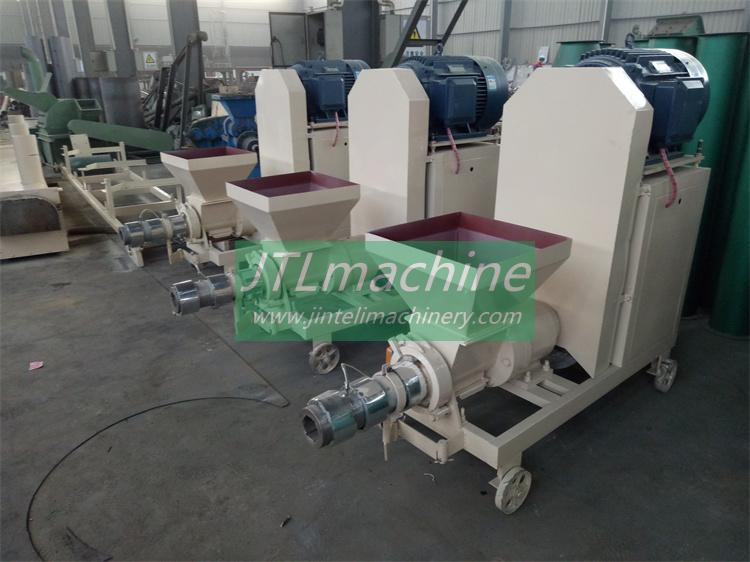Table of Contents
charcoal making machine: A Complete Guide to Understanding the Process and Machinery
Charcoal Making Machine: A Complete Guide to Understanding the Process and Machinery Charcoal has been a fundamental energy source for centuries, utilized in various industries and households worldwide. Its versatility, from cooking to metallurgy, makes it a valuable commodity. However, traditional methods of charcoal production often contribute to deforestation and environmental degradation. In response, modern technology offers sustainable solutions, such as charcoal making machines, wood sawdust block press machines, and firewood briquette making machines. The process of charcoal production begins with the selection of raw materials. Wood waste, such as sawdust, branches, and agricultural residues, serves as the primary source. These materials are abundant, renewable, and readily available, reducing the reliance on unsustainable practices like clear-cutting forests. Moreover, utilizing waste products promotes eco-friendly practices by repurposing materials that would otherwise decompose or contribute to pollution. Once the raw materials are collected, they undergo a series of processing steps to convert them into charcoal. This process typically involves drying, carbonization, and briquetting. Drying removes excess moisture from the raw materials, ensuring efficient carbonization and preserving the quality of the final product. Carbonization involves heating the dried materials in an oxygen-free environment, breaking down the organic compounds and leaving behind carbon-rich charcoal. Charcoal making machines automate these processes, streamlining production and improving efficiency. These machines come in various sizes and configurations, catering to different production scales and requirements. From small-scale operations for local communities to large industrial setups, charcoal making machines offer a customizable solution to meet diverse needs. Wood sawdust block press machines play a crucial role in the charcoal production process by compressing charcoal dust into uniform blocks or briquettes. These compact units facilitate storage, transportation, and handling, reducing logistical challenges associated with loose charcoal. Additionally, the compressed briquettes have a higher density and energy content, enhancing their combustion efficiency and heat output.Innovations in Biomass Briquette Production: Exploring the Efficiency of Wood Sawdust Block Press Machines
In the realm of sustainable energy and resource management, innovations continually emerge to address the pressing need for environmentally friendly alternatives. One such innovation gaining traction is the wood sawdust block press machine, a key component in the process of biomass briquette production. With a focus on efficiency and sustainability, these machines are revolutionizing the way biomass waste, particularly wood sawdust, is utilized to generate energy and reduce environmental impact. Biomass briquettes, made from compressed organic materials such as wood chips, sawdust, agricultural residues, and even municipal solid waste, serve as a renewable energy source. They offer a viable alternative to traditional fossil fuels like coal and oil, significantly reducing greenhouse gas emissions and mitigating the adverse effects of deforestation. In this context, the wood sawdust block press machine plays a pivotal role in streamlining the production process, enhancing efficiency, and maximizing the utilization of biomass resources. One of the notable advantages of wood sawdust block press machines is their ability to compress raw materials into dense and uniform blocks or briquettes. This compression not only increases the energy density of the biomass but also facilitates handling, storage, and transportation. By transforming loose sawdust into compact blocks, these machines enable easier integration into existing energy systems, such as boilers, furnaces, and biomass power plants. Moreover, wood sawdust block press machines offer versatility in terms of input materials. While sawdust is a primary feedstock, these machines can also process other biomass residues, including wood shavings, rice husks, straw, and agricultural waste. This flexibility allows for the efficient utilization of various biomass sources, optimizing resource utilization and minimizing waste. In addition to their environmental benefits, wood sawdust block press machines contribute to economic sustainability by creating new opportunities for revenue generation and job creation. By transforming low-value biomass residues into high-quality briquettes, these machines enable businesses to monetize waste streams and diversify their product offerings. Furthermore, the increased demand for biomass briquettes stimulates investment in manufacturing infrastructure and supports the growth of the renewable energy sector. The efficiency of wood sawdust block press machines is further enhanced by technological advancements and process optimization. Modern machines are equipped with advanced controls, automation features, and hydraulic systems that improve productivity, reduce energy consumption, and ensure consistent product quality. Additionally, ongoing research and development efforts focus on refining machine design, enhancing durability, and exploring innovative materials for briquette production. As the demand for sustainable energy solutions continues to rise, wood sawdust block press machines are poised to play a crucial role in meeting these challenges. By harnessing the power of biomass and converting it into a clean and renewable fuel source, these machines contribute to the transition towards a low-carbon economy and the achievement of global climate goals. However, realizing the full potential of biomass briquettes requires collaboration between policymakers, industry stakeholders, and research institutions to address barriers to adoption, promote investment, and foster innovation. In conclusion, wood sawdust block press machines represent a significant advancement in biomass briquette production, offering efficiency, versatility, and sustainability. By transforming waste materials into valuable energy resources, these machines contribute to environmental protection, economic development, and energy security. With ongoing technological advancements and a growing emphasis on renewable energy solutions, wood sawdust block press machines are poised to play a vital role in shaping the future of biomass utilization and sustainable development.
In conclusion, wood sawdust block press machines represent a significant advancement in biomass briquette production, offering efficiency, versatility, and sustainability. By transforming waste materials into valuable energy resources, these machines contribute to environmental protection, economic development, and energy security. With ongoing technological advancements and a growing emphasis on renewable energy solutions, wood sawdust block press machines are poised to play a vital role in shaping the future of biomass utilization and sustainable development.




